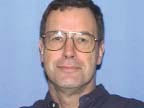![]() |
| Huangshan, Anhi province |
I last visited Huangshan in southern Anhui province in July, 1981, when I was leaving Wuhan after two years. Some students and faculty came to the boat dock to see me off. I was going to Wuhu, from there catching a bus to Huangshan. En route to Wuhu, I read Norman Mailer’s then-new The Executioner’s Song, about the execution of Gary Gilmore by firing squad, the first person executed since the reinstatement of the death penalty in 1975. I thought this would be a good way to begin reintegrating myself into American society.
![]() |
| Huangshan: 88 craggy peaks |
I revisited Huanghsan last month, thirty years later. It’s a range of 88 peaks, the tallest, Lotus Peak, not much over a mile high. They are folded granitic intrusions, different mountains having distinctive contortions, folds, erosion patterns and surfaces. Some are smooth, some jagged, the effects of weathering producing shapes that invite fanciful names.
![]() |
| The 老爷 |
Cars and buses take you part way up, to the park entrance, where you pay a stiff 250 kuai, about $40, for entrance, unless you’re lucky enough to be over 60, when it’s half price. I was happy to produce my passport and get in for half price, less happy when a young climber told a friend to move out of my way in a narrow spot to let the laoye, 老爷, through, a term meaning roughly “grandfather.”
![]()
Thirty years ago I’d climbed to Heavenly Capital Peak in four hours and was back down for lunch, but I wrote in my journal that “the last part, climbing almost straight up stairs in places too narrow for two to pass abreast, cut right into the rock, was so exhausting I could barely manage the more straightforward climb to adjacent Jade Screen peak, where I had lunch and a beer, and numbly headed down, arriving at 3:30 or so.”
That first part of the climb is the hardest; once you are to Heavenly Capital Peak, the others – White Goose Ridge, Beginning-to-Believe Peak (the sign says, in English, “It’s so fantastic you don’t believe your eyes; seeing with your eyes you believe it’s really fantastic.”) Lion Peak, Jade Screen Peak – are less strenuous since paths connect the peaks.
So I kept climbing and climbing until early evening, when people begin to gather on the peaks to watch the sunset. But time had told on the老爷; my legs were tired and wobbly and I wanted to get back to the bottom before dark. The town of Tangkou is at the bottom of the mountains; Huangshan city is some distance away.
![]() |
| Tangkou town |
Huangshan was a popular place when I went there thirty years ago, especially with students. On my second morning there in 1981 it was rainy, and I climbed up to Bei Hai where I spent the night at a hotel on top. I wrote in my journal that there were “makeshift dormitories for the Chinese students who were off long before dawn – a large crowd gathering for both sunset and dawn,” but there was none of the sea of clouds effect for which Huangshan is famed and which has attracted the brushes of countless painters over the centuries, “just puffs of cloud misting here and there, and boys huddled in winter jackets provided by the hotel for the specific purpose of watching the sunrise.”
![]() |
| There are people on that peak! |
There weren’t any clouds on this visit either. Instead of the hardy students of those days, when Huangshan was harder to get to and harder to climb, there are large tour groups with bright colored gimme hats and metal-tipped walking sticks, and guides with shrieking speakers. People still take their mountain climbing seriously though; clusters of people gather at the top of peaks that have no apparent means of access. Admonitory signs, in English and Chinese, line the paths, my favorite being “Leave your virtue in Huangshan.” A less entertaining translation: “Leave Huangshan beautiful.”
![]() |
| Leave your virtue in Huangshan |
Back in Tangkou, I had a vigorous foot and leg massage and, to my surprise, felt no after effects the next morning. I missed the Bei Hai sunrise, since it was a short outing: I had to take an early bus to Hangzhou and flight back to Wuhan.

No comments:
Post a Comment